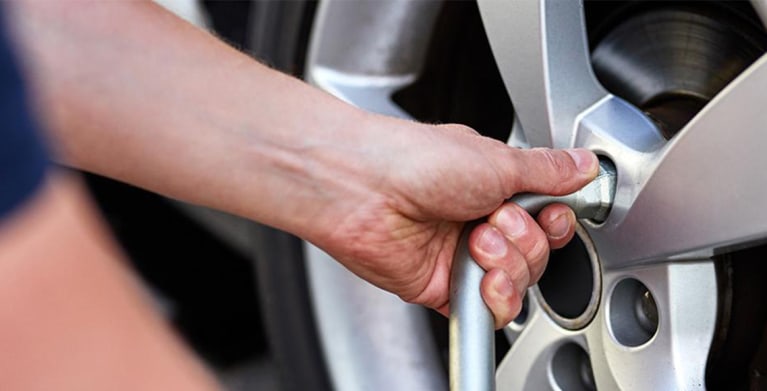Experience Accuracy with GMC Tire Service at Morris Tires
Experience Accuracy with GMC Tire Service at Morris Tires
Blog Article
Tire Service: The Effect of Climate Conditions
When it concerns making certain ideal performance and safety when driving, comprehending the impact of climate conditions on tire solution is critical. From scorching warm to icy roads, each weather element can substantially influence tire performance and overall driving experience. By delving right into the results of differing climate condition on tires, drivers can acquire useful understandings that might enhance their car's performance and durability. In this conversation, we will certainly check out the complex connection between weather problems and tire solution, dropping light on the significance of weather-specific tire upkeep techniques and considerations.
Warm and Tire Performance
When subjected to high temperature levels, tires experience changes in performance that can considerably impact car safety and handling. The heat created from long term driving or warm weather condition conditions causes the tire rubber to soften, resulting in decreased tread life and increased wear. As the rubber comes to be softer, the tire's grasp when driving decreases, affecting stopping distances and overall grip. In extreme instances, too much heat can also trigger tire blowouts, positioning a serious security risk to the lorry and its residents.

Winter Impacts
Cold weather conditions can have a considerable impact on tire performance and security. In cool weather, tires may additionally lose air stress more quickly, which can influence handling and fuel performance.
To mitigate the results of winter on tires, it is crucial to on a regular basis inspect tire pressure and inflate them to the supplier's advised levels. Using winter months or all-season tires designed for chilly climate conditions can also improve traction and hold on icy or snowy roadways. Appropriate tire maintenance, consisting of routine assessments for wear and damages, becomes even much more essential during colder months to make certain optimum efficiency and security.
Rainy Issues Effect
During stormy conditions, tire efficiency and safety can be dramatically influenced by the wet roadway surface areas and lowered presence. The walk pattern of tires plays an important duty in keeping traction on wet roads. Tires with damaged treads are much more susceptible to hydroplaning, where a layer of water accumulates in between the roadway and the tire surface area, causing loss of grip. To combat this, vehicle drivers ought to routinely evaluate their tires for ample walk deepness and think about buying tires particularly designed for damp conditions.
Additionally, stormy weather condition can likewise reduce presence, making it testing for vehicle drivers to see the road in advance plainly (GMC Tire Service). In such conditions, it is important to this readjust driving speeds as necessary and preserve a secure adhering to range to permit sudden quits. Effectively filled with air tires can also aid in preserving control on damp roadways by supplying better handling and grasp
Snow and Tire Safety
Snow-covered roads position unique difficulties for motorists, highlighting the relevance of proper tire option and upkeep. When driving in snowy conditions, having the right tires can make a substantial difference in safety and performance. Winter season tires are made with unique rubber compounds and tread patterns to supply much better traction on snow and ice contrasted to all-season tires. The much deeper footsteps and sipes of winter months tires aid grip the road better, decreasing the risk of gliding and sliding.

It is crucial to follow maker directions when setting up and utilizing tire chains to prevent damages to the tires and automobile. By selecting the right tires, maintaining correct inflation, and taking into consideration added grip aids like tire chains, motorists can boost their security when navigating snow-covered roads.
Weather-Related Tire Upkeep
When encountered with numerous weather, correct tire maintenance comes to be an important element of lorry safety and security and performance. Weather-related tire maintenance includes a variety of practices intended at guaranteeing optimum tire function and longevity in various weather circumstances. One key aspect of weather-related tire maintenance is tire stress policy. Fluctuating temperature levels can create tire stress to differ, affecting grip and fuel efficiency. On a regular basis examining and changing tire pressure according to manufacturer recommendations is important for secure driving in altering weather condition conditions. Furthermore, tire tread deepness plays a considerable role in dealing with various climate components. Tires with appropriate walk depth give much better grip on wet or icy roads, decreasing the threat of hydroplaning or skidding. When step wear gets to a certain deepness is important for preserving grip and stability in damaging weather, additional hints examining tire walk regularly and changing tires. By focusing on weather-related tire maintenance, drivers can enhance security, boost automobile performance, and extend the life expectancy of their tires.
Final Thought
In final thought, weather condition conditions have a considerable effect on tire efficiency and safety. From heat impacting tire pressure and put on to cool climate minimizing traction, it is important to consider the go to this website weather when preserving and making use of tires.
In this discussion, we will check out the complex connection in between climate problems and tire solution, losing light on the relevance of weather-specific tire maintenance techniques and factors to consider.

Report this page